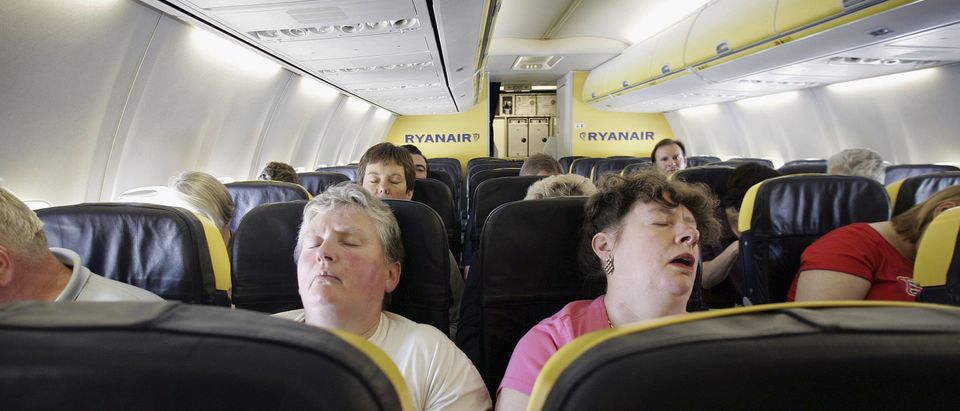For flyers traveling light and not picky about where they sit, the rise of à-la-carte airline pricing is a welcome development. But not all are happy with the new status quo of low prices for domestic and international flights.
In a letter to 11 American airline carriers, Democratic Massachusetts Sens. Edward Markey and Richard Blumenthal and Democratic Tennessee Rep. Steve Cohen criticized “fee gouging” and asked airlines for more information about future fee increases.
While it is true that some carriers (i.e. United Airlines) are raising baggage fees across the board, and other airlines (i.e. Delta Airlines and American Airlines) are raising baggage fees for international flights, all-inclusive prices remain rock-bottom by historical standards. In the midst of a spike in fuel prices, restricting à-la-carte pricing would lead to general fare increases, hurting consumers regardless of how many bags they choose to bring with them.
Complaints about exorbitant baggage and change fees are common and not without justification. Fliers with medical needs and/or small children may, after all, not have the option of just flying with carry-on bags. Yet travelers have a variety of airline options depending on their needs, with many of the larger carriers having predictable fees that seldom change over time.
According to a 2017 analysis by the Government Accountability Office (GAO), domestic baggage fees for Delta, Southwest and American Airlines haven’t budged since the start of the decade. These airlines account for more than 60 percent of all enplaned passengers in the United States, according to Department of Transportation data.
The GAO notes a large bifurcation in fees over the past decade, as no-frills carriers such as Spirit and Frontier Airlines push their fees higher and higher. But these airlines account for less than 6 percent of all American origin consumers, and this small minority seems to know what they’re getting into.
Ample media, reviews and news reports make clear that low-cost carriers are à-la-carte carriers with fees tacked onto everything. Travelers get what they pay for, yet many find that dodging fees beats paying a far higher base fare.
Regardless of airline class, the birds-eye view is clear: with or without fees, air travel costs have plummeted over the past few decades. According to industry and federal data, the inflation-adjusted domestic price per mile (including fees) has fallen 36 percent since 1990.
Without considering fees, prices have dropped 40 percent over the past twenty-eight years. The data shows that fees make up less than 15 percent of overall cost, dwarfed by factors outside of the consumers (direct) control such as fuel, overhead costs and taxes.
Instead of zeroing in on airline fees, lawmakers should take a long, hard look at airfare taxes. The federal government charges a 7.5 percent tax on all tickets, with an additional domestic segment fee of $4.10 (for each leg of an itinerary). International departures and arrivals are taxed $18.30 per ticket, not including miscellaneous customs, immigration and plant/animal inspection fees.
These charges can easily exceed airline fees, yet unlike airline tack-ons, there is no escaping them. On a $400 flight from the United States to Europe with just one domestic layover, federal taxes can easily add $60 (or 15 percent) onto the cost.
These taxes are used to prop up an air traffic control system stuck in the 1960s with costs far above nations that have chosen to privatize. Meanwhile, security “fees” fund a bloated security system that fails to engage in cost-effective screening. Professional conduct is rampant the Transportation Security Administration, yet the bureaucracy shields and transfers misbehaving employees at high taxpayer cost.
Even modest proposals to save taxpayer dollars, such as an idea to scale back screening at small airports, was abandoned after considerable pushback.
If lawmakers were as vigilant about government waste as they were about baggage fees, travelers would already have a far lower bill to pay. Instead, they choose to go after a system that produces lower prices and growing choices.
Ross Marchand is the director of policy for the Taxpayers Protection Alliance.
The views and opinions expressed in this commentary are those of the author and do not reflect the official position of The Daily Caller.


